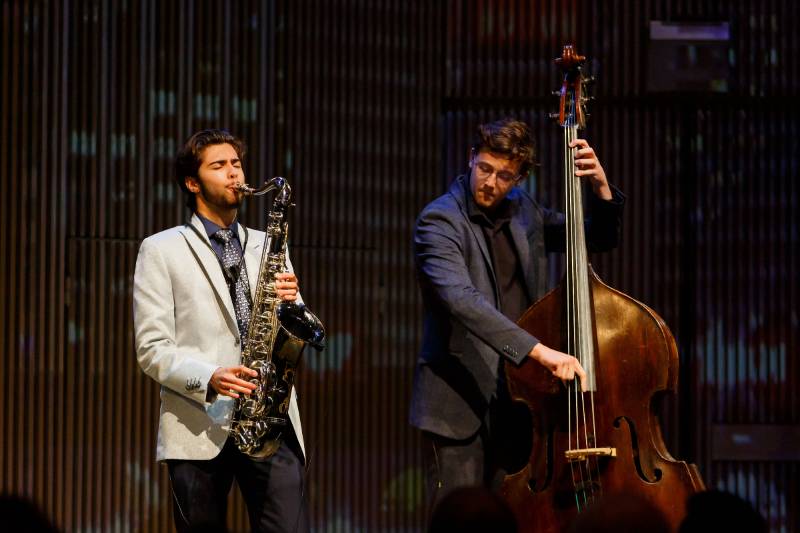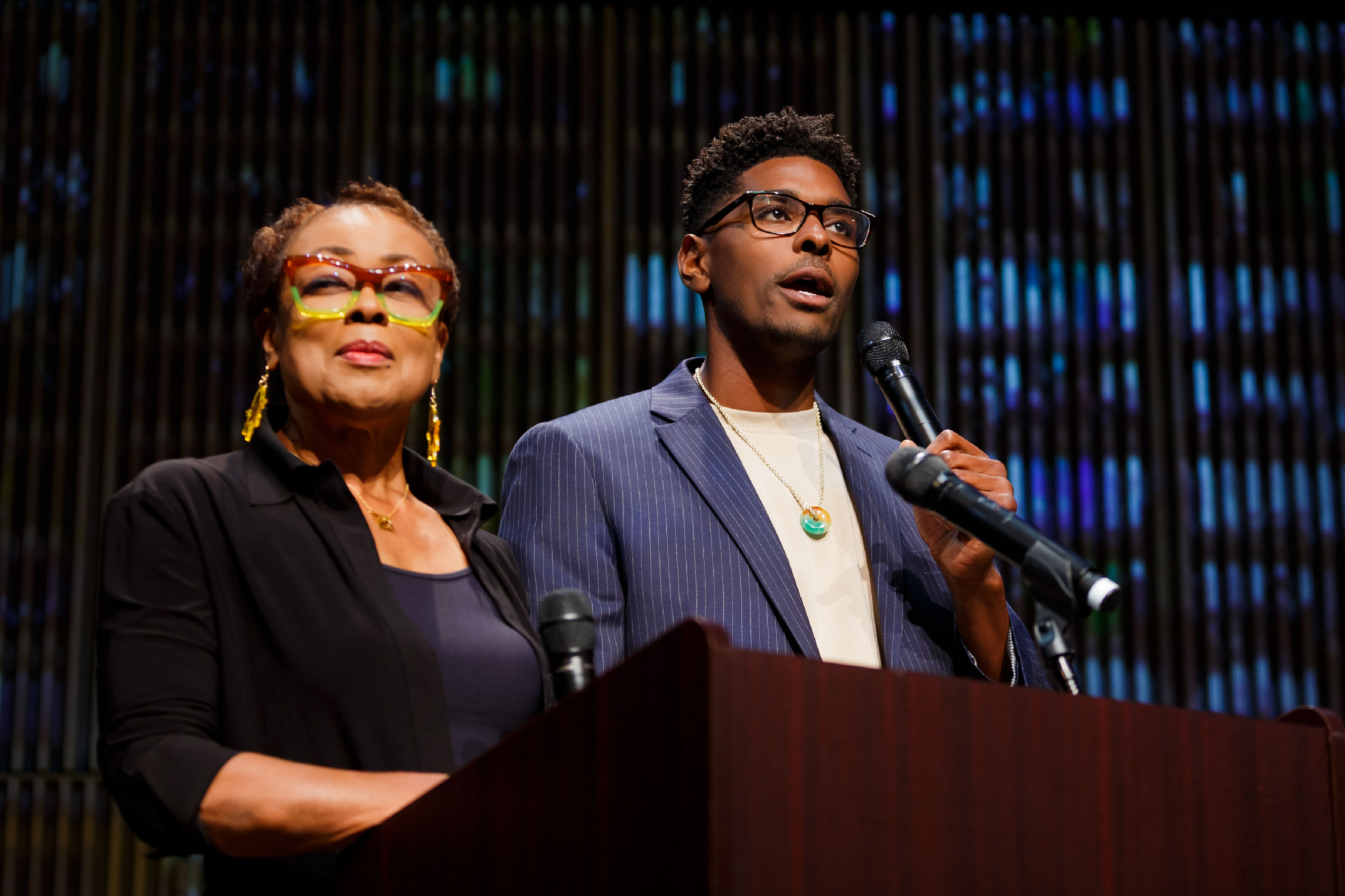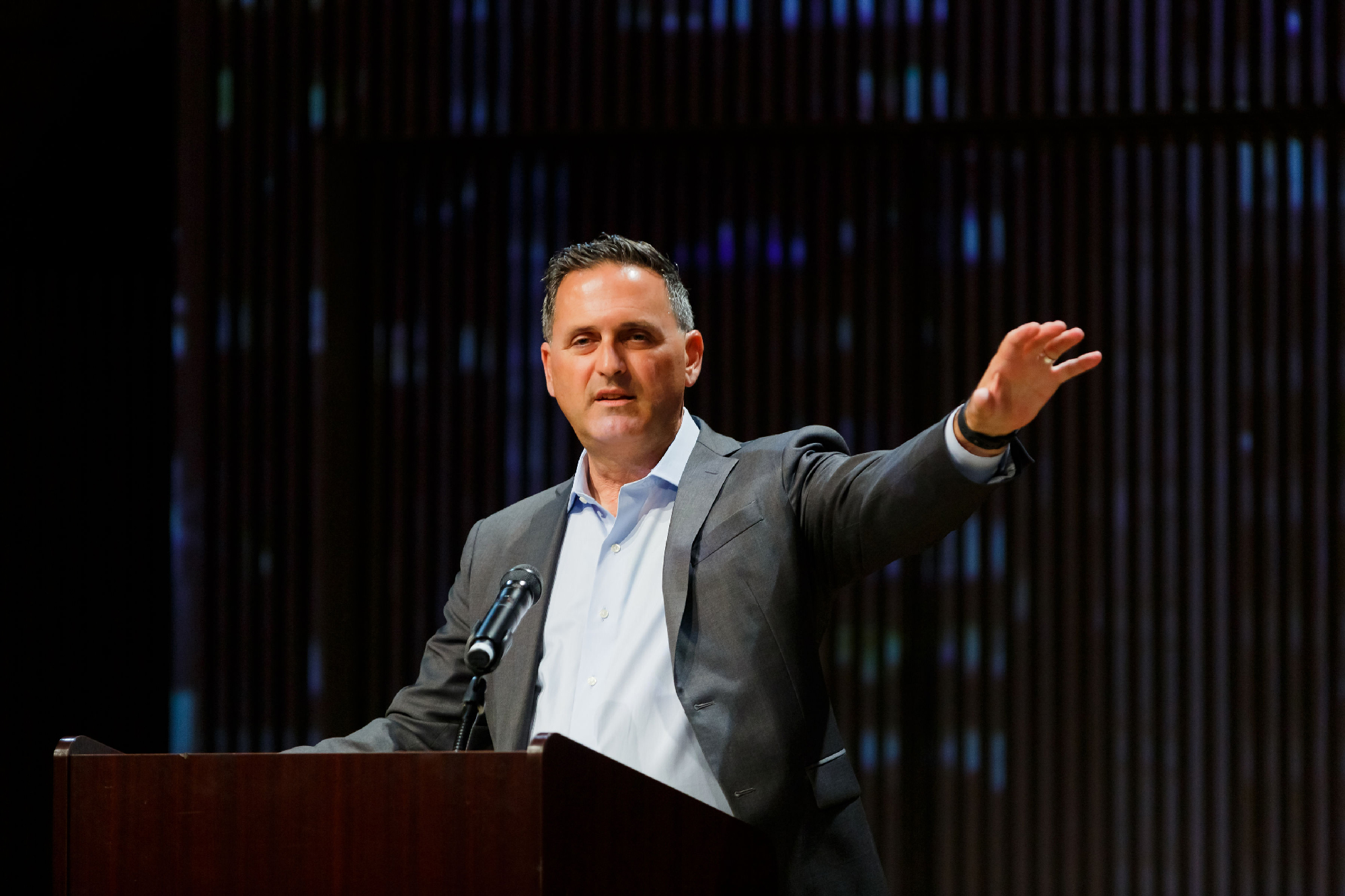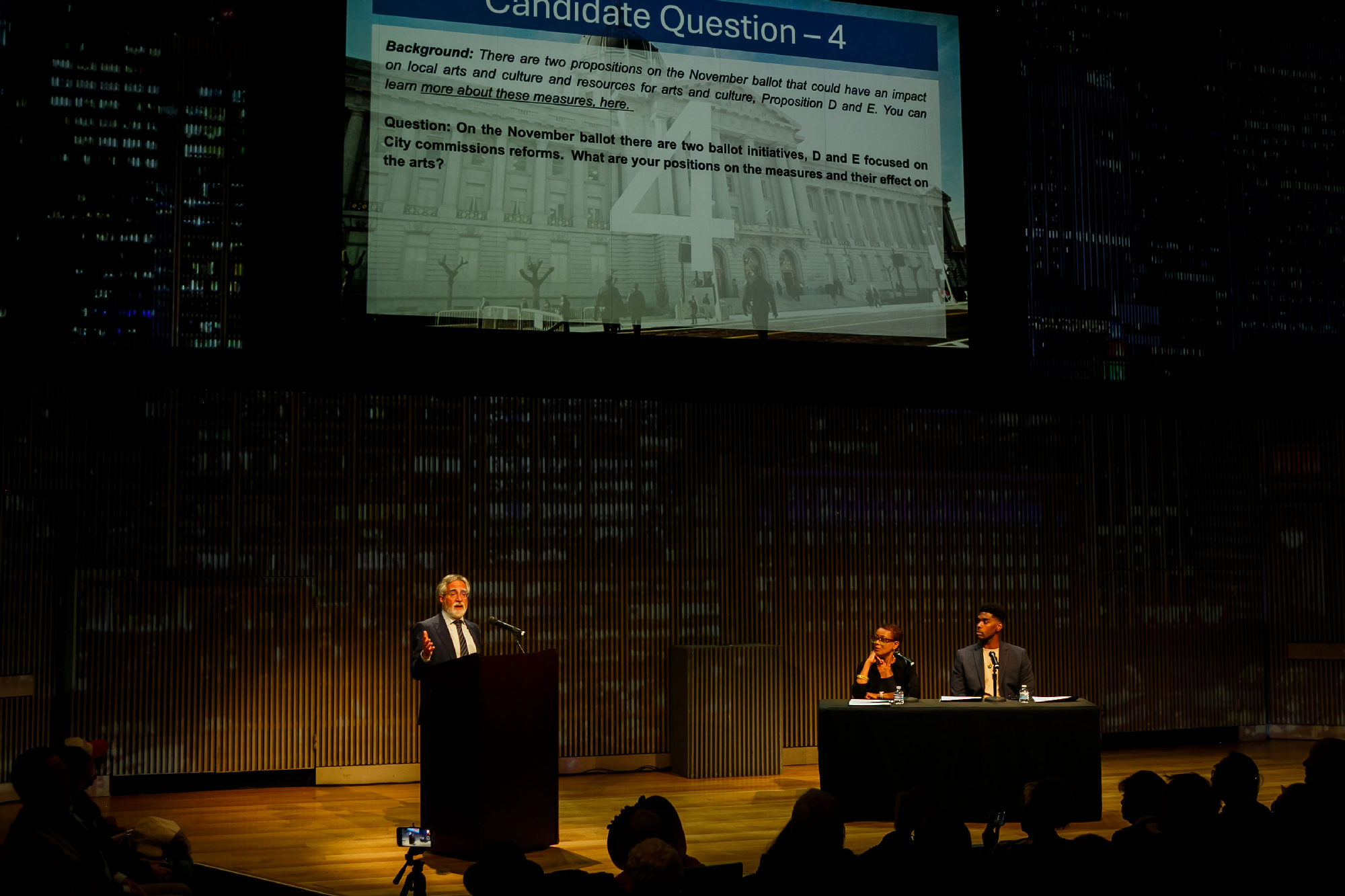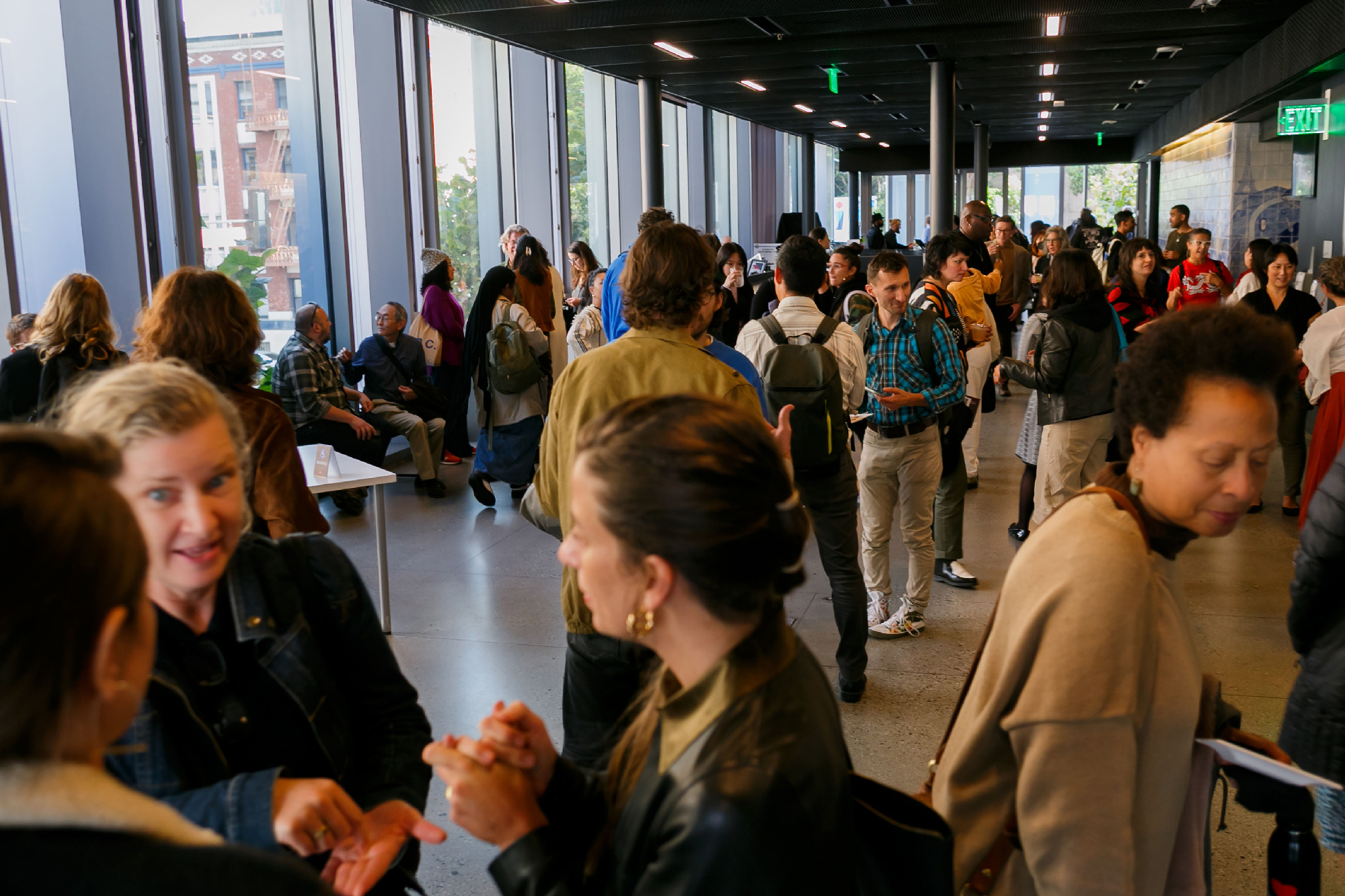On Wednesday, four San Francisco mayoral candidates appeared at an Arts Town Hall Mayoral Forum to present their proposals for supporting the city’s arts ecosystem.
Produced by Arts for a Better Bay Area, the forum’s panel included Mayor London Breed, Levi’s heir and nonprofit leader Daniel Lurie, President of the Board of Supervisors Aaron Peskin and Supervisor Ahsha Safaí. (Mark Farrell was noticeably absent from the forum, citing previous commitments.)
In the auditorium of the SFJAZZ Center, candidates took the stage one at a time, each with 15 minutes to answer the same four questions about arts priorities, funding, guaranteed income and two propositions on the November ballot.
Here’s where the candidates stand on each of the four arts-related issues.
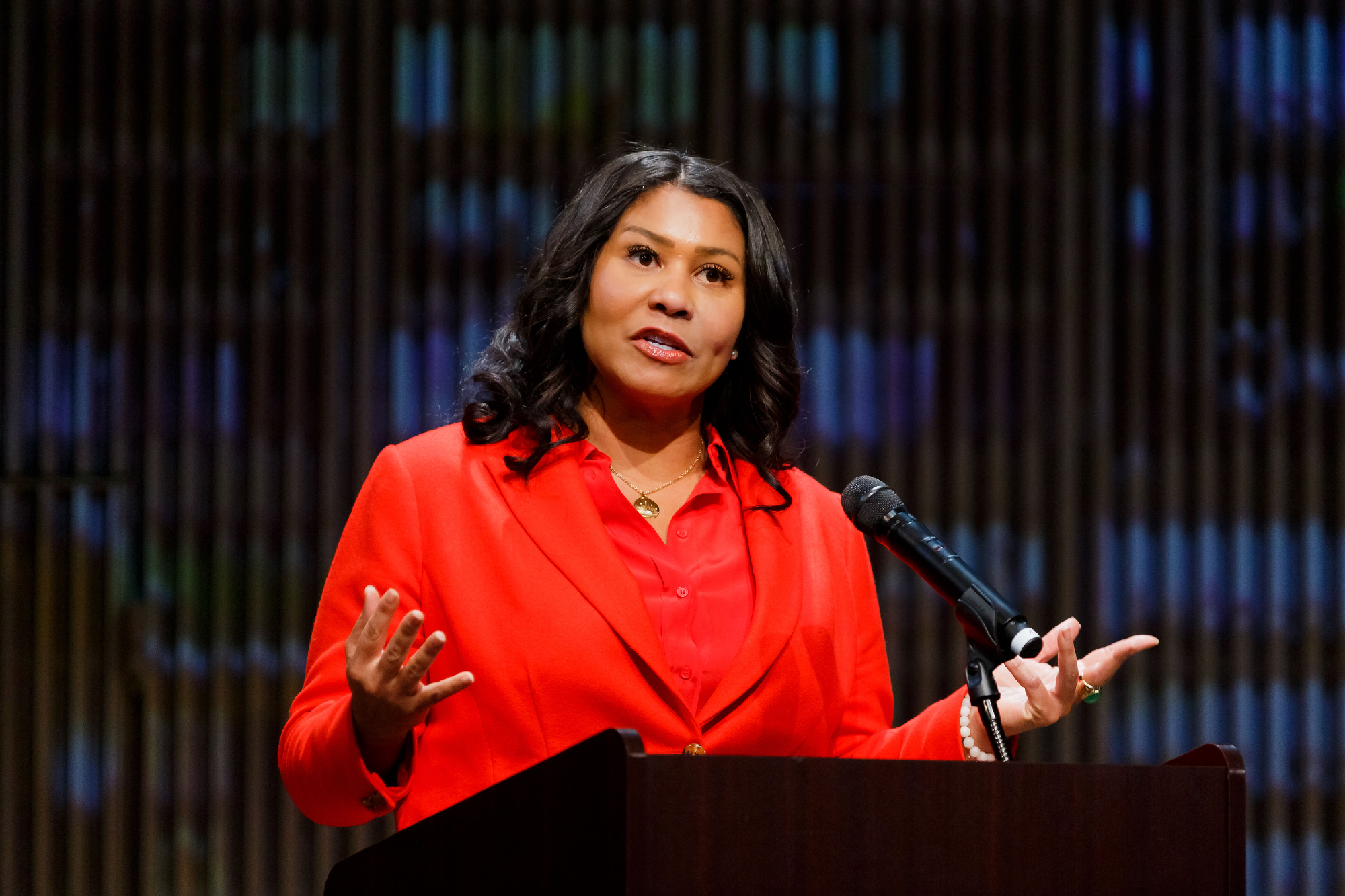
What are some of the ways you would work to help energize that total arts and culture ecosystem? What are your priorities for a thriving arts ecosystem?
Mayor London Breed, the first to take to the stage, cited her previous experience as the former executive director of the African American Art & Culture Complex and highlighted the work she’s done so far as mayor.
“I created the first ever universal basic income program for artists because of the need and to uplift our artist community,” she said, “My goal is not just to recognize and build upon the work that I’ve already done, but take it to the next level.” That includes ensuring that artists are able to actually access city-built artist housing, she said.
Aaron Peskin warmed up the crowd a bit before answering. (“Let me start by saying the obvious. I’m not from here. I come from the East … Bay,” he said, earning a few chuckles.) Getting ahead of the question related to propositions, Peskin said he wants to ensure artists can afford to live in San Francisco by passing the “sensible alternative” to Proposition D — Proposition E.
“This city,” he warned, “is being pushed in the wrong direction by some very conservative forces. And it is manifesting in many ways, including but not limited to a proposition that one particular billionaire put on the ballot that would actually eliminate the Arts Commission, Proposition D, and I’m not having it.”
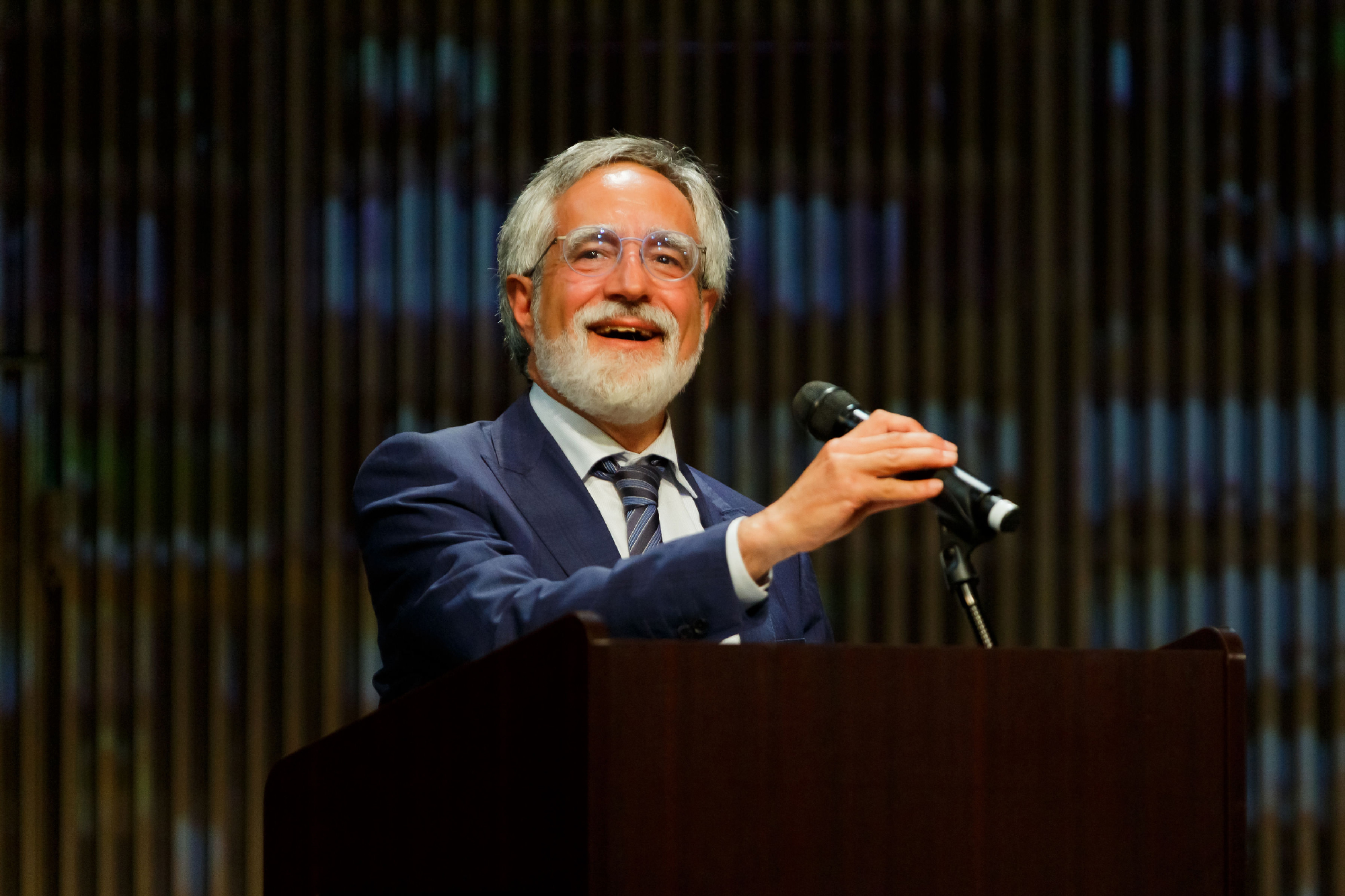
Daniel Lurie touted his experience with the Civic Joy Fund and its Paint the City program. But what seemed to resonate more with voters in the audience was his call for more public safety.
“We know our performing arts are struggling down on Market Street because of public safety issues and people not wanting to come downtown,” Lurie said. “Our symphony, our opera, the big ones are struggling financially, and that’s going to hurt our small business arts organizations.”
Ahsha Safaí’s vision includes supporting middle and high school art programming.
“The way to energize that is to do more cultural celebrations, to have an artist laureate for the city,” Safaí said. “Doing everything we can to infuse that into our youth programming.”
As mayor, how will you ensure that direct funding for organizations that provide stability and access continues to grow as the hotel tax recovers? How would you address the issue of equity in the arts?
Breed spoke again to her previous track record as mayor.
“I have made it a point to at least maintain our arts funding at the same levels, even in the midst of a global pandemic,” said Breed. “We’ve also opened up opportunities for the Office of Economic and Workforce Development because the arts bring in $1.5 billion to our city’s economy,” she said.
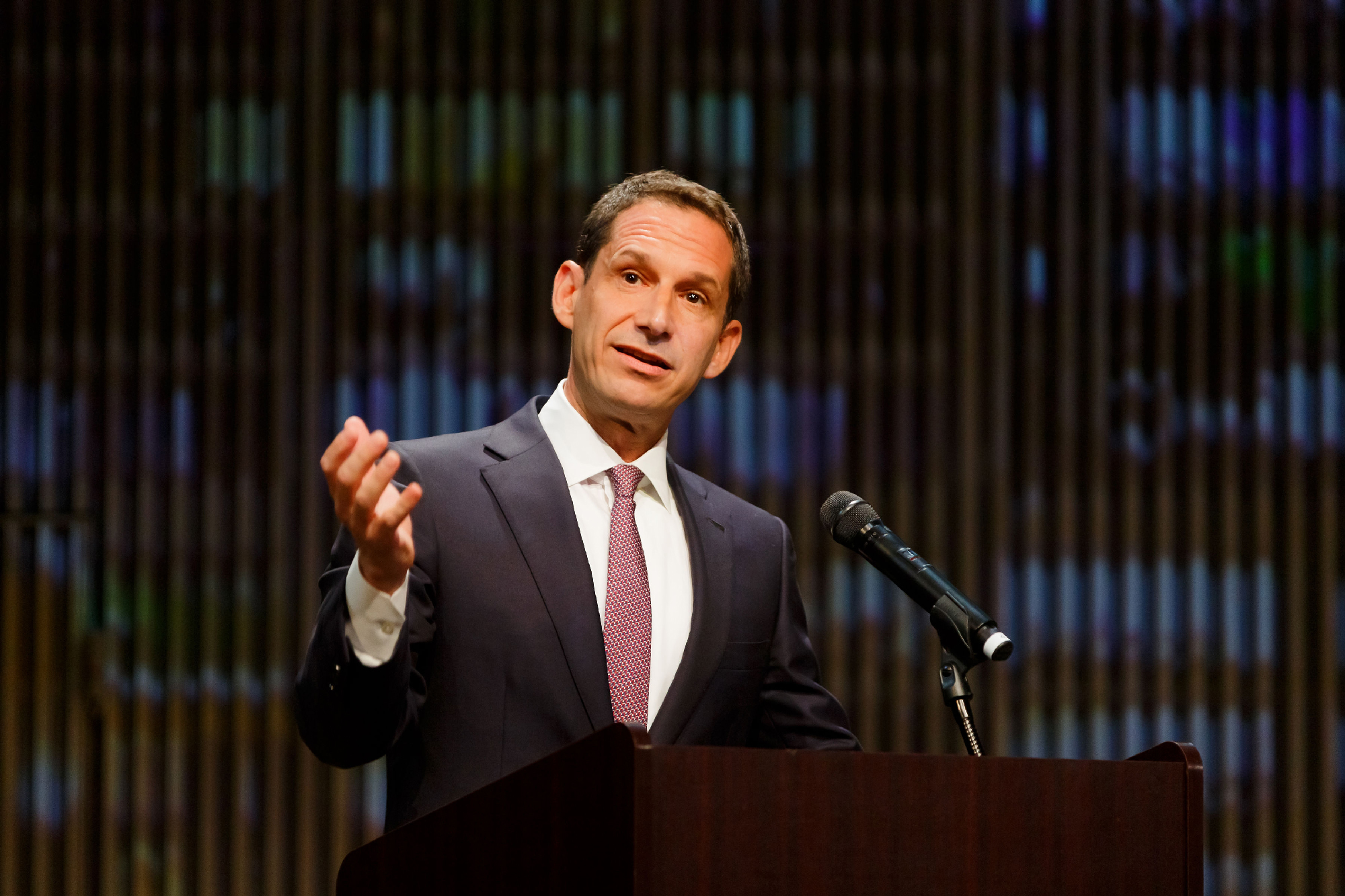
Lurie laid out a plan for adding more police and mental health workers to “get people off the streets” and make the city more attractive to tourists, thus increasing the hotel tax, which funds the arts.
“We have a perfect example with Dreamforce, that’s going to fill our bars, our restaurants,” Lurie said. “We’ve made public safety a priority this week … we need to make public safety a priority 365 days a year.” Lurie then sidelined slightly to talk about World Cup matches and NBA All-Star Games, as well as 2025’s Super Bowl LX, which will be held in Santa Clara.
Peskin also highlighted public safety, calling it a priority.
“So is the arts,” he added. “I am willing to stand up and say that we need to find new sources of revenue in order to sustain what I think is one of the basic services of San Francisco, and that is the arts.”
Safaí emphasized preserving the hotel tax.
“You want to see what a city’s priorities are, you look at the budget, you see where the funding is allocated,” Safaí said. “And as mayor, that would be a top, top priority for me with the power that’s invested in that office. And protecting the hotel tax, and ensuring that it’s not reallocated in any other way.”
